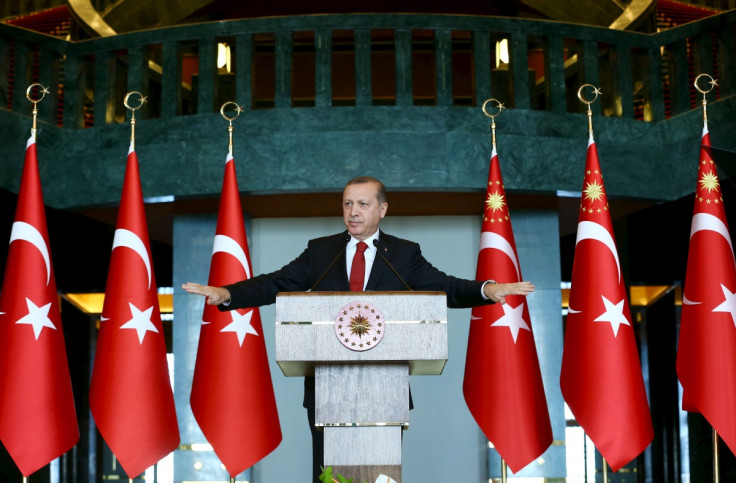Turkey: Outrage as police arrest dons for backing pro-Kurdish declaration critical of Erdogan

Turkish police moved to detain 21 academics among more than 1,000 signatories of a declaration harshly criticising a military campaign against Kurdish militants and calling for peace talks. The arrests drew a wave of condemnation online and fuelled concerns over freedom of expression in the country under President Recep Tayyip Erdogan.
Security forces held 12 lecturers at Kocaeli University near Istanbul, in early morning raids, while arrest warrants for another nine were being prepared, local media reported. They were picked up at home by police on accusations of "insulting the state" and "terrorist propaganda".
Their alleged crime was signing a petition entitled "We won't be a party to this crime", which was endorsed among others by US philosopher Noam Chomsky and his Slovenian colleague Slavoj Zizek. The document accused the government of a serious breach of international and human rights laws in its crackdown on the outlawed Kurdistan Workers' Party (PKK).
Curfews have been imposed and military operations carried out in towns and districts of Turkey's mainly Kurdish southeast, after a shaky truce between Ankara and the PKK collapsed last year. More than 100 civilians have lost their lives and thousands displaced in the subsequent conflict, according to human rights groups. Six people, including a child were killed in the latest incident that saw PKK militants detonate a truck bomb outside a police station in Cinar on 13 January.
"We demand the state to abandon its deliberate massacre and deportation of Kurdish and other peoples in the region. We also demand the state to lift the curfew, punish those who are responsible for human rights violations, and compensate those citizens who have experienced material and psychological damage," the petition read. "We demand the government to prepare the conditions for negotiations and create a road map that would lead to a lasting peace which includes the demands of the Kurdish political movement."
The document infuriated Erdogan, who accused Turkish signatories of being part of a "fifth column"serving foreign powers", "mentality of colonialism". "You so-called intellectuals are not enlightened persons, you are in the dark. You are nothing like intellectuals," the president said in a speech hours after an Islamic State suicide bomber killed 10 tourists in Istanbul. "All you want is to stir this country up."
The arrests followed swiftly, angering online commentators.
If calling for peace becomes equal to supporting the PKK, Turkey is heading down a dangerous road.
— Zia Weise (@ZiaWeise) January 15, 2016Disgraceful that Kocaeli & Bolu peace call academics detained & face terrorism propaganda investigation https://t.co/sCM5XIPke1
— Emma Sinclair-Webb (@esinclairwebb) January 15, 2016Academic freedom alert: Shocking news of questioning and arrests of academics in multiple cities in Turkey for singing a letter re SE Turkey
— Başak Çalı (@calibasak) January 15, 2016One of the signatories, Tahsin Yesildere, head of the University Instructors' Association told Today's Zaman newspaper: "It should be acknowledged that universities are places where all kind of opinions can be expressed. So, academics don't have to share or support the idea defended by the state. No one should face threats due to their views. Being paid by the state does not bring about approving any action performed by it".
The US ambassador to Turkey, John Bass, also criticised the detentions. "In democratic societies it is imperative that citizens have the opportunity to express their views, even controversial or unpopular ones," he said in a statement. "Expressions of concern about violence do not equal support for terrorism. Criticism of government does not equal treason.
© Copyright IBTimes 2025. All rights reserved.






















